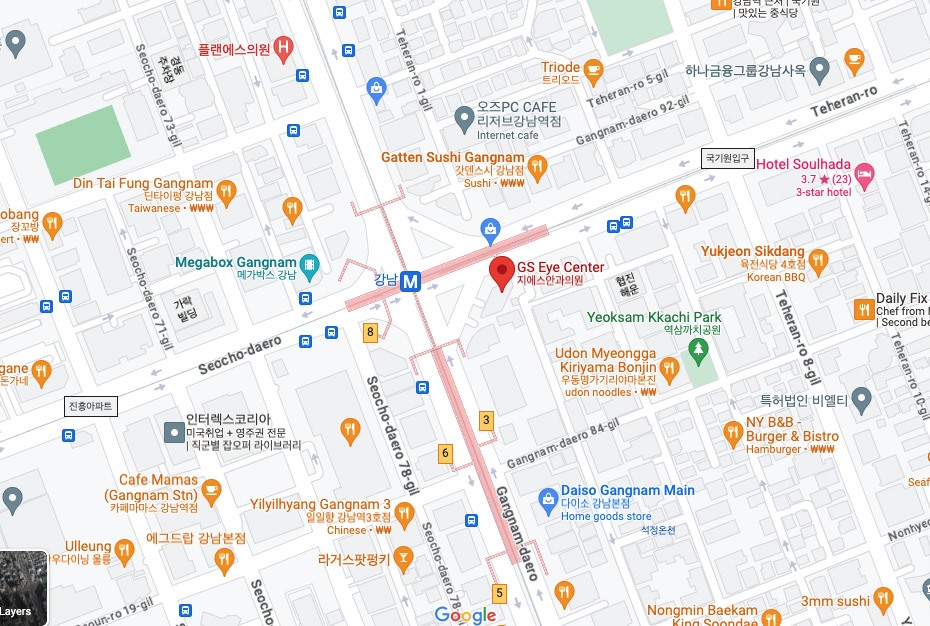The implantable contact lens has emerged as a revolutionary vision correction option, offering an alternative to eyeglasses and standard contact lenses. People who want long-term vision clarity are becoming more interested in surgery. Before undergoing implantable contact lens surgery, it is crucial to navigate through a checklist of crucial considerations.
This blog explores the ins and outs of implantable contact lens, covering the most important things to consider before getting one. Let’s examine the considerations when deciding on lens implantation treatment.
Implantable Contact Lens: Things to Check Before Surgery
출처: freepik
If You’re worried about LASIK side effects, you can opt for implantable contact lens surgery. However lens implantation treatment has transformative potential, but there are a few things to consider first. Such as:
Lens Size: Choosing the Right Fit
When considering implantable contact lens surgery, it’s essential to compare lens size effectively. During surgery, your ophthalmologist will carefully measure and assess your eye structure to ensure a tailored fit. Your eye professional uses this personalized approach to compare lens size that aligns with your unique anatomy. Providing a snug fit facilitates optimal visual clarity and minimizes discomfort.
Side Effects of Large Lens Size
Despite the temptation to choose a larger lens size for expanded visual coverage, it’s crucial to compare lens size carefully. Too large a size can cause complications, like irritation, difficulty positioning, and infection. By maintaining precision to compare lens size, you won’t have these concerns, and you’ll recover faster.
Side Effects of Small Lens Size
Conversely, choosing a lens that’s too small can cause discomfort, blurriness, and vision problems. It’s crucial to compare lens size meticulously to find the right balance. By selecting the proper size, you’ll reduce strain and ensure success with lens implantation treatment.
Astigmatism Axis: Precision in Alignment
Implantable contact lens surgery also requires meticulous examination of the astigmatism axis. It becomes essential for those who have one eye blurry after LASIK, seeking a refined solution to visual irregularities.
During an eye examination, your ophthalmologist will evaluate your astigmatism axis. It involves determining the specific angle at which the irregularity exists. A precise understanding of the astigmatism axis is crucial in customizing the implantable contact lens. And correcting vision distortions associated with astigmatism, like one eye blurry after LASIK.
Impact of Incorrect Alignment
When astigmatism is not correctly addressed, suboptimal visual outcomes can occur, like one eye blurry after LASIK. Unless the lens is aligned precisely with the astigmatism axis, visual blurring may occur. Post-surgery, a thorough assessment and correction of the astigmatism axis are essential to achieving good vision.
Our insights will help you make well-informed decisions about your vision correction journey, especially if you have one eye blurry after LASIK.
Surgical Experience: Ensuring Proficiency and Expertise
When considering implantable contact lens surgery, the surgeon’s experience becomes a crucial factor. The expertise and proficiency of the surgeon are vital to the success of the procedure.
Investigate thoroughly the surgeon’s experience and background in lens implantation treatment before making a decision. Having a seasoned surgeon instills confidence since they bring a wealth of knowledge and experience.
Most of the doctors at Gangnam GS Ophthalmology are trusted enough to operate on themselves and their families. In fact, idols and actors often visit GS Ophthalmology for lens implants. In general, those who have difficulty with LASIK and LASIK are more likely to receive lens implants.
Ask your surgeon about the steps involved in the surgery and the techniques he uses.
Experienced professionals will transparently explain the lens implantation treatment procedure and address any concerns. In that case, GS Opthomology is your best option for eye surgery in South Korea for lens implantation.
Ultimately, you may find Evo ICL surgery to be a good choice if you are worried about Lasik side effects. Let’s take a look at EVO ICL vs Lasik and what the differences are.
Evo ICL vs LASIK: Navigating Vision Correction Choices

출처: freepik
LASIK and EVO ICL each offer unique advantages in the world of vision correction. To make an informed choice tailored to your vision needs, you need to know the characteristics of Evo ICL vs LASIK.
Key Differences
Evo ICL vs LASIK comes down to their approach to vision correction. Evo ICL involves the implantation of a specialized lens, offering reversible and adjustable correction. As opposed to that, LASIK reshapes the cornea with a laser for a permanent change in vision.
1. Visual Clarity and Quality
When considering Evo ICL vs LASIK, it is essential to evaluate the impact on visual clarity. With Evo ICL, you get a more natural view with less glare and halos, making it an excellent option for high prescriptions. In certain conditions, LASIK can cause slight visual disturbances.
2. Recovery and Adjustability
It is essential to consider the recovery period and adjustability when comparing Evo ICL vs LASIK. In addition to its quicker recovery, Evo ICL’s adjustable features allow fine-tuning post-surgery. Although LASIK usually requires a faster initial recovery, it lacks adjustability.
3. Personalized Consultation
To make an informed decision between Evo ICL vs LASIK, consult with your ophthalmologist. Depending on your specific visual needs, lifestyle, and eye health, they’ll recommend the best option for you.
By understanding the intricacies of Evo ICL vs LASIK, it is easier to decide which is best for you.
GS Ophthalmology: Your Trusted Lens Implantation Treatment
GS Eye Clinic stands as a trusted partner for eye surgery in South Korea, offering a wealth of experience spanning over 18 years. Our doctors specialize in various intraocular lens (IOL) implantation surgeries, from anterior chamber to posterior chamber procedures like GLAZE and EVO + ICL. According to US FDA standards, we measure corneal endothelial cell count and ocular anterior chamber depth carefully during surgeries to ensure optimal outcomes.
We place a high value on efficiency in everything we do. GS Eye Clinic offers same-day scheduling from consultation to surgery so you can achieve your vision goals quickly. As part of our commitment to maximizing your time, we perform eye surgery in South Korea on the same day as your consultation.
Besides ensuring a quick recovery, we focus on achieving successful surgical outcomes. The clinic’s reputation for excellence is reinforced by frequent celebrity visits, which are showcased on our Instagram account and official website. With ongoing success and top-tier care, GS Eye Clinic continues to attract a large number of patients seeking eye surgery in South Korea.
? 3 things to consider about lens implantation treatment
The Takeaway
Finally, it is crucial to consider the factors mentioned above before undergoing implantable contact lens surgery. Each step is essential, from assessing eligibility to ensuring precise lens size to understanding the intricacies of astigmatism.
GS Eye Clinic has more than 18 years of experience guaranteeing optimal outcomes for eye surgery in South Korea. We are available if you require more information on one eye blurry after Lasik or lens implantation.
As we guide you along the path to improved vision, you can be confident in knowing that every aspect has been considered.
What is Smile Pro and how long does Smile Pro take?
Smile Pro represents a significant advance in vision correction technology for shortsightedness. In addition to minimizing discomfort during and after surgery, this innovative technique facilitates a rapid smile eye surgery recovery time. Unlike traditional Lasik, Smile Pro offers a revolutionary vision correction experience that combines speed and sophistication within 10 seconds.
What is 2-Day Lasek?
2-Day Lasek is a revolutionary laser eye surgery technique developed to boost your vision with minimal discomfort and a quick recovery.
Where should I get my eye surgery in Korea?
GS Eye Clinic in Seoul, Korea, is at the forefront of the latest technological advancements in laser eye surgery, including cataract surgery, Smile Lasik, and Lasek. Please schedule a consultation with GS Eye Clinic today to explore your options via our KakaoTalk Channel or visit us at 8,15,16F, Mizin Plaza, 390 Gangnam-daero, Gangnam-gu, Seoul, Korea.
GS Ophthalmology Center
Directions 8,15,16F, Mizin Plaza, 390 Gangnam-daero, Gangnam-gu, Seoul, Korea








